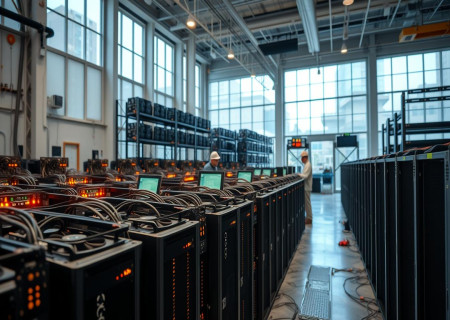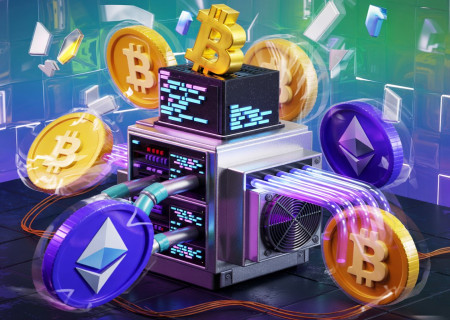
- December 7, 2024
- 1 year ago
Best Small & Large Bitcoin Mining Pools for Beginners & Experts
The universe of cryptocurrencies is large and sophisticated. Those eager to participate depend on Bitcoin Mining Pool. Newers as well as experts should understand the mining pools idea.
In the realm of cryptocurrencies, mining pools are indispensable. They allow people collaborate to tackle difficult arithmetic tasks. Unlike single mining, this teamwork increases the possibility of prizes and provides a consistent revenue.
One should explore both large and small top mining pools. Knowing the advantages and forms of approach helps everyone, new or experienced, make wise decisions.
What Makes Bitcoin Mining Pools Essential for Miners
For both new and experienced miners, Bitcoin mining pools are absolutely essential Because Bitcoin is distributed, mining is difficult for lone attempts. One miner by herself has little chance of tackling challenging arithmetic problems.
Mining pools aggregated power of multiple miners. This increases the possibility of getting prizes and solving arithmetic difficulties. The mining environment of today depends on this kind of teamwork.
The Economics of Pool Mining vs. Solo Mining
The financial advantages of pool mining and solo mining varies as well. Though unusual, solo mining pays great benefits. Pool mining offers a consistent income depending on computing capability.
For individuals seeking consistent revenue, pool mining is superior. It lowers the possibility of long stretches without a block.
How Mining Pools Provide Consistent Rewards
Through cooperation, mining pools present consistent benefits. Working collaboratively, miners address issues more often. This guarantees a consistent salary.
The prize is distributed according to computational capability of every miner. This paradigm inspires everyone to participate. It guarantees consistent rewards as well, hence mining is a consistent income source.
How Bitcoin Mining Pool Systems Operate
Bitcoin Mining Pool systems work by joining forces. They combine the power of many miners. This helps them solve tough math problems and check transactions on the Bitcoin network.
A pool operator manages the system. They take care of the setup, give tasks to miners, and handle the rewards.
Pool members get rewards based on their computing power. This makes their income more steady than solo mining.
There are different types of pools, like proportional, pay-per-share, and hybrid. Each has its own benefits and drawbacks.
It's key for miners to know how these pools work. This helps them pick the right one. It boosts their earnings and cuts down risks.
FAQ
What is a Bitcoin mining pool?
A Bitcoin mining pool is a group of miners working together. They use their combined power to solve complex math problems. This way, they increase their chances of earning Bitcoin rewards.
How do Bitcoin mining pools operate?
In a Bitcoin mining pool, members work together to solve math problems. They share the rewards based on how much power each member contributes.
What are the benefits of joining a Bitcoin mining pool?
Joining a pool has many benefits. You get a better chance of earning Bitcoin, more consistent payouts, and less variance in earnings.
What are the different types of Bitcoin mining pools?
There are several types of pools. These include proportional pools, pay-per-share (PPS) pools, and score-based pools. Each has its own way of sharing rewards.
How do I choose the best Bitcoin mining pool for my needs?
To pick the best pool, look at the fee structure, payout threshold, and reputation. Also, consider the reward distribution mechanism.
What is the role of a mining pool operator?
A mining pool operator manages the pool's setup and software. They also distribute rewards to miners based on their power contribution.
How do mining pools handle transaction fees?
Mining pools usually include transaction fees in the block reward. This reward is then split among members based on their power contribution.




